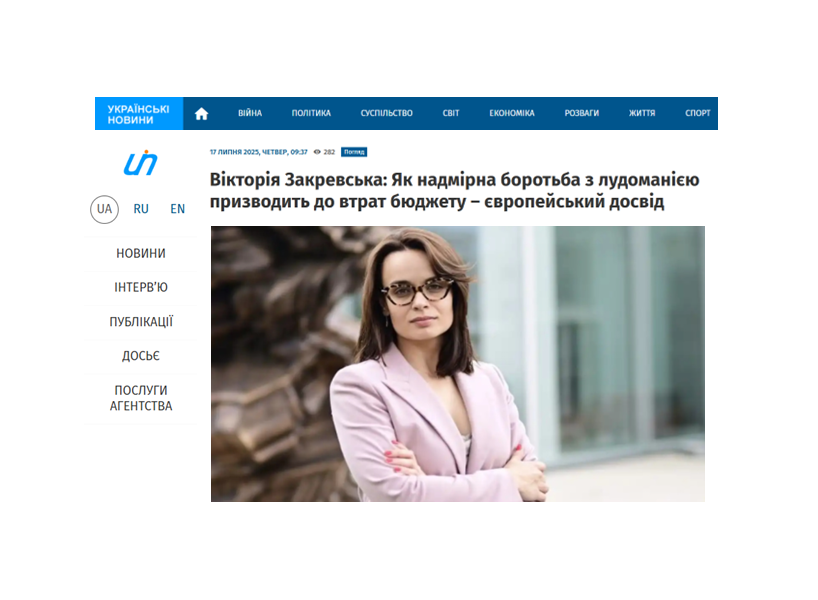How excessive measures against gambling addiction result in budget losses: the European experience
- Viktoriya Zakrevskaya

- Jul 16, 2025
- 3 min read

The fight against gambling addiction is a significant challenge for many European countries, as the social consequences of unchecked gambling can be severe. Accordingly, protecting vulnerable groups is a high priority.
However, excessively strict regulations aimed at limiting gambling can have adverse economic effects, including reduced revenues for legal operators and state budgets, as well as growth in the illegal market. The experiences of the Netherlands, Lithuania, France, Italy, and Spain illustrate how such measures can reduce legal industry revenues and foster the development of black and grey markets.
In the Netherlands, new regulations introduced in 2024 to protect players included deposit limits (€300 for players aged 18–24 and €700 for older players) and mandatory financial checks. According to the Kansspelautoriteit (KSA), these measures reduced the average monthly gambling spend per player from €116 to €80 (a 31% decrease). During the same eight-month period, the gross gaming revenue (GGR) of legal operators fell by 8%.
However, these measures also had unintended consequences. Searches for illegal gambling websites increased, suggesting a shift of players to the unregulated sector. The level of channelisation—i.e. the share of gambling on legal platforms—is only 50%, indicating a strong presence of the illegal market. Additionally, the increase in the gambling tax from 30.5% to 34.2% in 2025, with a further rise to 37.8% planned for 2026, could worsen the situation. This may push legal operators out of the market, posing risks both to players, who lose the protections of a regulated environment, and to the state, which loses tax revenue.
France illustrates how excessively strict control measures can result in the dominance of the illegal gambling market. Since 2010, the black and grey markets have accounted for approximately 60% of total gambling activity in the country. Restrictions on the operations of legal operators, introduced with the aim of protecting the public, have driven players toward unregulated platforms that fall outside the scope of state oversight.
In Italy, a complete ban on gambling advertising has allowed illegal operators to capture around 23% of the market. Players often struggle to distinguish between legal and grey-market websites, creating favourable conditions for unlicensed platforms to thrive.
A similar trend is evident in Spain, where a royal decree issued in 2020 nearly eliminated advertising opportunities for licensed gambling operators. As a result, 20% of bets in the country are placed through unregulated channels. This not only reduces government revenue but also undermines regulatory control, potentially worsening the issue of gambling addiction rather than alleviating it.
Lithuania is preparing to introduce new restrictions on the advertising of legal gambling operators, similar to those implemented in the Netherlands. Experts predict comparable consequences: growth of the illegal market, reduced revenues for legal operators, and a decline in tax income.
The broader European experience demonstrates that overly restrictive measures in the fight against gambling addiction can often produce the opposite of the intended effect, while also creating additional problems. Harsh regulations—such as strict deposit limits or comprehensive advertising bans—tend to drive players toward unregulated platforms, leading to a shrinking legal market, decreased state revenues, and diminished consumer protection.
To prevent such outcomes, regulatory approaches must be balanced and tailored to the specific characteristics of both the national gambling market and local social context. A more moderate, evidence-based regulatory framework will support the development of the legal sector while offering better protection for players and safeguarding public revenues.

Comments